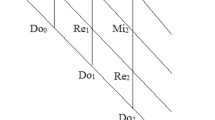Abstract
Francois Recanati has recently argued that each perceptual state has two distinct kinds of content, complete and explicit content. According to Recanati, the former is a function of the latter and the psychological mode of perception. Furthermore, he has argued that explicit content is temporally neutral and that time-consciousness is a feature of psychological mode. In this paper it is argued, pace Recanati, that explicit content is not temporally neutral. Recanati’s position is initially presented. Three desiderata for a theory of time-consciousness are subsequently introduced. It is then argued that a theory locating time-consciousness as a feature of psychological mode will fail to satisfy these desiderata. In the last section the intentionality of memories is discussed. Using the notion of shiftable indexical, it is argued that memories have the same explicit content as perceptions, but that they nevertheless can have different conditions of satisfaction since they are entertained in different modes.
Similar content being viewed by others
Notes
We shall however depart from Meinong in the specifics of the tristinction.
As Smith has pointed out, perceptual content seems to be singular and demonstrative rather than indefinite as in Searle’s account (Smith 1986: 201); thus the change from “a red ball” to “the red ball”.
For the sake of simplicity, this account leaves out the complication that the explicit content also contains a reference to the past tense.
I am very grateful to an anonymous referee for suggesting that the problem could be treated this way. I owe the entire idea that the tensed indexicals in perceptual content could be treated as shiftable indexicals to him or her.
I owe this point as well to my anonymous referee.
References
Chisholm, R. M. (1981). Brentano’s analysis of the consciousness of time. Midwest Studies in Philosophy, 6, 3–16.
Dainton, B. (2000). Stream of consciousness. Unity and continuity in conscious experience. London: Routledge.
Meinong, A. (1899). Über Gegenstände Höherer Ordnung und deren Verhältnis zur Inneren Wahrnehmung. Zeitschrift für Psychologie und Physiologie der Sinnesorgane, 21, 181–271.
Miller, I. (1984). Husserl, perception and temporal awareness. Cambridge: The MIT Press.
Recanati, F. (2007). Perspectival thought. A plea for moderate relativism. Oxford: Oxford University Press.
Recanati, F. (2010). Truth-Conditional Pragmatics. Oxford: Clarendon Press.
Schlenker, P. (2003). A Plea for Monsters. Linguistics and Philosophy, 26, 29–120.
Schlenker, P. (2004). Context of thought and context of utterance: A note on free indirect discourse and the historical present. Mind & Language, 19, 279–304.
Searle, J. (1983). Intentionality. An essay in the philosophy of mind. Cambridge: Cambridge University Press.
Smith, D. W. (1986). The ins and outs of perception. Philosophical Studies, 49, 187–211.
Smith, D. W. (1989). The circle of acquaintance. Perception, consciousness, and empathy. Dordrecht: Kluwer.
Acknowledgments
Thanks are due to Alexander Almér, Kent Gustavsson, Ingvar Johansson, Christer Svennerlind and an anonymous referee for valuable comments.
Author information
Authors and Affiliations
Corresponding author
Rights and permissions
About this article
Cite this article
Almäng, J. Time, Mode and Perceptual Content. Acta Anal 27, 425–439 (2012). https://doi.org/10.1007/s12136-011-0134-0
Received:
Accepted:
Published:
Issue Date:
DOI: https://doi.org/10.1007/s12136-011-0134-0




